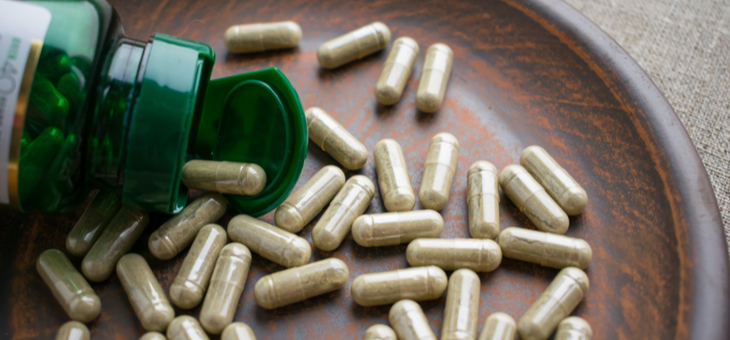Biotin, also known as vitamin H or B7, plays a crucial role in keeping your nails, skin and hair healthy. Vitamin B in crucial to the functions that decrease inflammatory response in your body and help to draw energy from food. Biotin is a co-enzyme for carboxylases, which plays an important role in insulin release, neurotransmitter production, and metabolising carbohydrates, proteins and fats.
Biotin is sometimes used to help treat conditions such as brittle nails, neuropathy, hepatitis and nerve pain related to type 2 diabetes. However, there is limited research to back up these claims.
Although rare, a biotin deficiency can cause skin problems and hair loss. A small study of 45 patients found that taking a supplement containing 2.5mg a day for five months caused 91 per cent of participants to have harder and firmer finger nails. However, some larger studies have found that the efficacy of biotin is limited, due to unsubstantial evidence.
Someone eating a healthy diet is unlikely to become deficient in vitamin B7. It can be found in seeds, nuts, wholegrain cereals, whole-wheat bread, red meat and eggs. Eighty-five grams of cooked beef liver contains 30.8mcg of biotin, the same amount of salmon contains 5mcg and a single egg 10mcg. It is found in smaller amouns in plant-based products such as sunflower seeds (2.4mcg per quarter cup), almonds (1.5mcg per quarter cup) and sweet potato (2.4mcg per half cup).
Biotin deficiency is incredibly rare, though may occur during pregnancy, harming the foetus. During pregnancy take daily multivitamins that contain at least 30mcg of biotin.
While biotin supplements may be beneficial for people with acquired or inherited deficiencies, or those conditions such as uncombable hair and brittle nail syndrome, there is limited research to suggest biotin supplements are beneficial ordinary people.
If you enjoy our content, don’t keep it to yourself. Share our free eNews with your friends and encourage them to sign up.
Related articles:
Are multivitamins a waste of money?
Do B vitamins stop Alzheimer’s?
Signs you’re low in vitamin B12
Disclaimer: This article contains general information about health issues and is not advice. For health advice, consult your medical practitioner.

